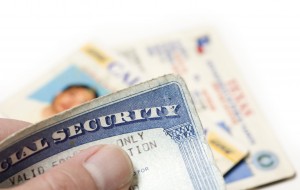 Identity theft, including medical identity theft, is a growing threat in the United States. Unfortunately, too many consumers, healthcare providers, and businesses of all types and sizes ignore this threat.
Identity theft, including medical identity theft, is a growing threat in the United States. Unfortunately, too many consumers, healthcare providers, and businesses of all types and sizes ignore this threat.
The latest statistics still show that one out of four consumers have their identity stolen, equating to about 11.6 million identity theft victims a year. It’s also estimated that some sort of data breach will affect one out of ten consumers, and one out of eight patients will become a victim of medical identity theft.
The cost of identity theft is devastating. Hackers and thieves buy Social Security numbers for just $1.00, but you’ll spend thousands of dollars and countless hours recovering your identity. On the other hand, a person’s medical identity averages just $50, but insurance companies and the patients affected could spend millions in recovery costs.
All It Takes is the Right Data
Identity thieves only need a few key items to steal an identity. A Social Security number, name, date of birth, and a driver’s license number can reveal everything a thief needs. Thanks to the Internet, identity thieves can go to work doing reverse lookups and other searches using the limited information they find, and then gather the other data they need to steal your identity.
Thieves have several outlets at their disposal to steal identities, including:
- Dumpster diving (or your own trash cans)
- Stealing mail
- Check washing
- Stealing wallets and purses
- Performing telephone and email scams
- Obtaining death records
It’s Not Just Professionals
Identity theft is not just perpetrated by professional thieves. In fact, relatives and friends of victims—and even healthcare workers—steal identities every day. Cyber thieves are the most common in data breaches and system hacks.
Everyone is at Risk for Identity Theft
While the elderly are common targets of identity theft, they’re certainly not the only people at risk. Elderly individuals are, however, at higher risk because most are not computer savvy, do not know how to check their credit reports, and are more trusting, which means they’re more likely to fall victim to scams.
The second most vulnerable group is children. Children have clean credit slates and most parents are not proactive at monitoring their child’s credit report. Parents can, however, sign up their children for CreditKarma.com to keep an eye on their credit profile. Also, parents should teach their children to never share personal information (including dates of birth and Social Security numbers) with people they don’t know.
The deceased are also at risk for identity theft. Sadly, thieves look for obituaries to find the information they need to steal the deceased person’s identity. Since most family members do not check the credit of their deceased loved ones, it can be years before the identity theft is ever noticed.
Veterans are also at risk. Because they leave the United States for extended periods, serving their country, thieves take advantage of the fact that they’re unlikely going to check their credit report.
Lastly, people who use social media unwisely are at risk for identity theft. This is because they publicly broadcast their personal information and leave it ripe for the taking by identity thieves.
Medical Identity Theft Cases Are on the Rise
While identity theft is a common occurrence, medical identity theft is growing quickly as well. It’s estimated that 5.8 percent of identity theft cases are medical identity theft crimes—and most arise from medical data breaches. But medical identity theft is also dangerous. It can result in not receiving the right type of treatment due to incorrect medical records, which can lead to adverse reactions and, worse, death.
Preventing Identity Theft
There are many steps you can take to protect yourself from identity theft. While there isn’t a 100 percent effective method to prevent it, these steps are proven to limit the likelihood of your identity being stolen in the future.
- Become a member of ID360, the only identity theft protection company that’s run by law enforcement and recovers your identity after it’s stolen.
- Shred everything that has your name, address, and personal information on it (including junk mail).
- Place a fraud alert with credit bureaus so that they scrutinize new credit accounts.
- Use a gel pen so that your checks and signatures cannot be washed.
- Never put your Social Security number on documents and do not carry your Social Security card with you.
- Review your credit reports annually and look for any unauthorized applications or accounts.
You must take your prevention steps even further to prevent medical identity theft:
- Always check your explanation of benefit documents you receive in the mail, and make sure the services you are charged for were actually received.
- Request and review an annual “benefits paid” statement from your insurance company.
- Keep copies of your own health records for reference.
- Never share your insurance card with anyone.
- Shred medical documents when they are no longer relevant.
- Do not take advantage of free medical care or surveys.
- Report a stolen insurance card immediately.
- Never throw away prescriptions with your name on it.
What to Do When Your Identity is Stolen
There are things you can do to lessen the impact identity theft and medical identity theft have on your life:
- Call 877-ID-Theft and speak to the FTC immediately.
- Call your local police department and file an official report.
- Put a fraud alert on your credit report with all three credit bureaus, and then freeze your credit so it can no longer be used.
- Get copies of all three credit reports.
- Cancel all credit cards in your name.
- Contact your bank and give them copies of your official reports, and freeze your checking and savings accounts.
For more information about how you can prevent identity theft and medical identity theft from happening to you, visit The Identity Advocate. You’ll learn all of the ways you can protect your identity and how to recover it when it’s stolen. You can also contact the identity theft experts at The Identity Advocate by calling 310.831.4400.












